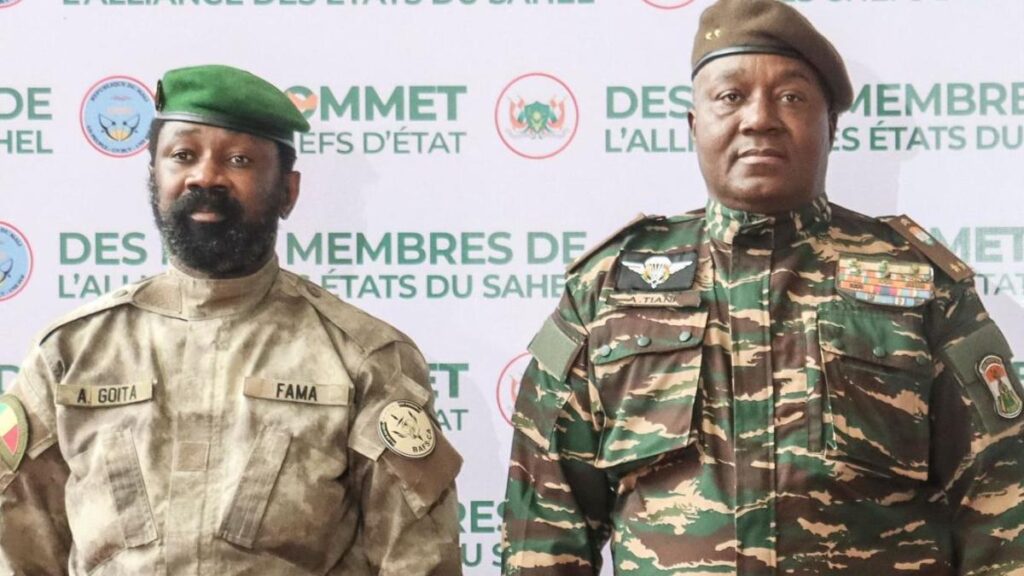Three West African countries ruled by military juntas will introduce new biometric passports “within days” as part of their withdrawal from the broader regional bloc ECOWAS.
Mali, Burkina Faso and Niger, where military leaders seized power in a series of coups between 2020 and 2023, announced plans to leave the bloc in January.
After the coups, West African countries imposed sanctions on the juntas, aiming to push them to return to civilian rule as quickly as possible.
But the three countries that now form the Sahel Alliance have so far resisted the calls, opting to strengthen their alliance.
“A new biometric passport of the (alliance) will be put into circulation in the coming days with the aim of harmonizing travel documents in our common territory,” the leader of the Malian junta, Colonel Assimi Goïta, said in a televised speech on Sunday evening.
Colonel Goïta, the acting chairman of the Sahel Alliance, delivered a speech a day before the military governments were to celebrate the first anniversary since they decided to create their own alliance.
He said they also planned to establish a joint service that would promote “harmonious dissemination of information across our three states.”
Burkina Faso previously announced that it wanted to launch a new biometric passport without the Ecowas logo.
It is still unclear what impact the new passports will have on their citizens’ travel to other ECOWAS states, where they have been able to travel visa-free as holders of regional passports for 15 countries.
In July, junta leaders said they were “irrevocably” turning their backs on Ecowas.
They said they wanted to build a community of sovereign peoples, based on African values and “far from the control of foreign powers”.
The latest announcement comes as ECOWAS is working to have the three Sahel countries rejoin the bloc.
ECOWAS recently warned that formalizing the breakaway group risked regional disintegration and worsening insecurity.
The three countries established the Sahel Alliance last year to boost military cooperation. In July, they formed a confederation to broaden the scope of their cooperation beyond security.
The Sahel region has been plagued by jihadist violence for decades, estimated to have killed thousands of people and displaced millions.
Tackling the insurgency is one of the reasons military leaders have given for taking power, but they have so far failed to quell the violence.
The three military-led countries have all expelled French soldiers who were helping to fight jihadist groups there and have turned to Russia for military aid.
You may also be interested in:


Go to BBCAfrica.com for more news from the African continent.
Follow us on Twitter @BBCAfricaon Facebook on BBC Africa or on Instagram at bbcafrica
BBC Africa Podcasts







